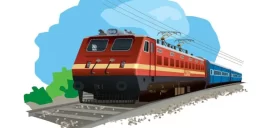9.1.0 Responsibility for Receipt and Inspection of Stores :
Receipt and Inspection of Stores is one of the very important activities because quality of incoming stores depends upon the effective inspection. Therefore, all the Stores depots have separate `Receipt’ and Inspection’ section. This Receipt section is generally under the charge of a DSK-1 who is assisted by other DSKs and also some ministerial staff.
Some of the Depots are having separate sections under `Receipt and Inspection’ (`R’) Section as under:
(a) Progress Section manned by ministerial staff under control of an OS/Chief Clerk.
(b) Unloading section manned by DSK and assisted by few clerks/labor.
(c) Inspection section manned by DSKs
9.1.1 Non-Stock items are generally consigned directly to the Indenting officers and therefore responsibility of proper receipt and inspection of such items lies/with the Indenting officer or their representatives.
9.2.0 Procedure for Receipt and Inspection of Stores:
Various procedures laid down for the receipt and inspection of the Stores are mainly to achieve following objectives.
(a) Proper chasing/progressing is done against all the purchase orders against which supplies are to be received by the depot for stock items, or by the indenting officers for non-stock items.
(b) Correct delivery of the materials is taken without loss of time. It is to be ensured that the material is received in correct quantity and of correct quality.
(c) Inspection of the stores is not abnormally delayed.
(d) All the materials received by the depot or direct consignees are properly accounted into Railway Books.
(e) Rejected stores are disposed of early.
9.2.0 Progressing Of Purchase Orders :
9.2.1 For items to be received in a Stores Depot , Progressing is done by the Progress Section of eceipt Section . Procedures are so designed that all the purchase orders are properly entered on their receipt and there is regular follow up with the supplier before expiry of delivery period. Progressing of the orders against which materials are directly to be dispatched to users, is done by the user departments.
9.2.2 Generally all chasing with the supplier should be done within the currency of the contract i.e. . till the delivery period has not expired. On expiry of delivery period, contract is no more live and therefore such contracts can be made live only with the mutual consent of Purchaser and supplier.
9.2.3 Extension in delivery period is granted by the COS office on firms request consignee/depot officer/inspecting officer has also been delegated power to accept delayed material as under :
(a) for orders valuing up to Rs. 50,000 consignees can accept delayed supplies for a period up to 6 months from the expiry of original delivery date
(b) for contracts valuing more than Rs. 50,000 but less than Rs. 1 lakh these powers are for a period up to 21 days only provided original delivery period in the purchase order was not of a period more than 6 months.
(c) In all other cases extensions are to be granted by the Purchase Officers only.
9.3.0 Effecting Delivery Of Consignments :
9.3.1 Procedure of effecting of consignments In A Stores Depot : Rly. Receipts / P.W.Bills for the materials dispatched by the suppliers in fulfillment of agreements/contract made by them, are first received in Progress section of Receipt Section which are connected with the relevant supply orders etc. and registered in a manuscript register called R.R.Register . All such RRs and PW Bills are then handed over to unloading section along with the history sheet indicating
- PO case No.,
- Number of packages,
- Booking station and
- Station of destination where delivery will be effected by the consignee.
Unloading section may be manned by one DSK/II one DSK III and / or Sr. Clerks (depending upon workload). DSK/II being incharge of the section is responsible to DSK /I of R Section.
Most of these Stores depots are provided with a Railway Siding manned by a goods clerk of Commercial Dept. These staff take delivery of materials consigned to Stores Depot siding directly from the goods clerk posted in the siding.
Delivery of all the smalls not booked to siding and materials booked by parcel (P.W.Bill) is taken from Railway station.Unloading staff has to sign in the delivery book of Commercial department in token of having received the material.
If the consignment received is short and this shortage is not disputed by goods clerk remark may be given in the delivery book and a shortage certificate should be obtained from the goods supervisor for supporting claim on Commercial department.
If the packages are found damaged, tampered or in disturbed condition, the consignments are weighed before taking delivery in presence of RPF and Commercial staff and qualifying delivery remarks are recorded in the goods delivery book. D.D. (Damage & Deficiency) message is got issued by Goods Clerk in all such cases of discrepancies etc.
After passing qualifying remarks in the Traffic delivery book for the discrepancies noticed at the time of unloading, R.R. is surrendered and open delivery / assessment requested through a memo within 48 hours of unloading.
The damaged packages are opened in presence of Comm. staff, Stores Dept. staff and RPF staff. The contents booked are checked with the challan to know the exact loss etc. An open delivery report
signed jointly by Commercial staff, Stores staff, and RPF staff is obtained to support claim on carriers.
The present powers for granting open delivery/ assessment are as under
(1) CGC of siding : up to a value of Rs. 1000/-
(2) CGS of siding : up to a value of Rs. 2000/-
(3) ACS / DCS : All other cases where value of discrepancy is assessed to be more than Rs. 2000/- rest with ACS : DCS.
9.3.2 Procedure For Non-Stock Items :
For non-stock items consigned to Stores Depot procedure is same as above.
For non-stock items dispatched directly to various consignees, delivery of materials from Commercial Dept. is taken by the consignees. Practice followed is same as described above and it should be ensured that in case of shortage / damage procedure for open delivery as referred above is followed.
9.3.3 Claims : Consignments, against RR/PW Bills if not delivered within a reasonable time by the carriers, are required to be claimed within six months from the date of booking / date of R.R. As the claims on carrier are to be preferred within six months, timely action is required to be taken so that the claims do not become time- barred. Therefore the RRs / PW Bill Registers are periodically reviewed by the Depot Officer. If during this review it is seen that a consignment has not been received within a reasonable time (45 to 90 days) a missing report is sent to all concerned
with a copy to CCS. For such cases a manuscript register ( Claims Register) with following details, may be maintained :-
A standard proforma for the missing report may be prepared and should be used.
9.4.0 Quantity Checking :
9.4.1 Immediately on receipt of the material packages should be opened and contents should be thoroughly checked. If there is any shortage/damage/breakage, supplier should be immediately advised about this. In case of valuable consignments, it is always better that a `panchanama’ is prepared for the shortages.
9.4.2 There may be a tendency on the part of some of the consignees for not opening the packages immediately on receipt. This practice is undesirable because packages are not generally water tight and if moisture has entered and damage the material, supplier cannot be held responsible for this. Suppliers may also not accept any shortages if they are advised after unduly long period.
9.4.3 Quantity checking is generally 100%. Fragile items should be checked carefully.
9.5.0 Inspection & Testing :
9.5.1 Pre-Inspected Stores : These are materials which have been inspected by either Rail India Technical & Economic Service or RDSO or Director of Inspection. These authorities/issue Inspection Certificates in token of having inspected and passed the material. It should be checked up that Inspection Certificate has been received. If the same has not been received a reference to Firm / Inspecting Agency has to be made.
o Inspection certificate bears a facsimile of inspection seal put either on the material or packages / bags containing the material and first of all it should be checked up that all material or packages, as the case may be, bear proper inspection seal as shown in the Inspection Certificate.
o If the materials do not bear proper inspection seal they should be provisionally rejected on the ground that the material is not the same as inspected by Inspecting Agency.
o If it is ascertained from the inspection seal that the material is the same as inspected by inspecting Agency, the Stores should be visually examined and if during visual inspection, prima facie, they
appear not to our specification, we should go for detailed inspection & testing.
o If the facilities for detailed testing and inspection do not exist, the material may be sent to Chemist & Metallurgist of the Railway for testing. In some cases material may be sent to other recognized laboratories also.
o If during detailed testing, materials are found not conforming to specification, they should be provisionally rejected and a rejection advice should be issued to the firm with a copy to Inspecting Agency for arranging joint inspection.
o If the firm accepts the rejection, stores should be disposed off as described below, but if the firm do not accept our rejection, we should pursue with the Inspecting Agency to arrange the joint inspection early.
o Date of joint inspection is fixed by the Inspecting Agency. Firm is also advised about the date of joint inspection, but the same may be carried out if firms representative remains absent.
o At the time of joint inspection, a joint report will be prepared and decision as agreed will be final. If the stores are found not to specification even during joint inspection, rejection advise will be issued.
9.5.2 Un-Inspected Materials: These materials have not been previously inspected and purchase order specifies inspection by consignee. For these items consignee has to ensure that the materials supplied are as per specification provided in the purchase order. If he does not have adequate testing facilities the materials may be got tested from Chemist and Metallurgist or other laboratories. In any case material should be accepted only after satisfying about their quality.
9.6.0 Accountal Of Materials :
9.6.1 Stock items received in the Depots For these items if they are foundas per specification, Depot grants Receipt Note. This is prepared in 5 as per specification, Depot grants Receipt Note. This is prepared in 5 copies in case of Railway contracts and 4 copies in case of DGS &D contracts. (In this case supplier copy is not required). However, if Inspecting Depot and receiving depots are different, then R Note may be prepared in 6 copies.
Distribution of R Note copies is as under :-
- Copy No. 1 .. Depot record copy
- Copy No. 2 .. Stores Accounts copy (EDP posting is done through this copy)
- Copy No. 3 .. Supplier copy.
- Copy No. 4 .. Accounts (Bill Paying Officer) copy
- Copy No. 5 .. Authority placing the order (COS) copy.
- Copy No. 6 .. To be returned to inspecting depot duly acknowledged.
o After the R/Note has been signed by the Depot officer (ACOS), this is sent to Stocking Ward along with the material. The Stocking Ward enters the receipt particulars in his receipt register after acknowledging the material to Receipt Section. S.No. of this receipt register which is known as Receipt Order No. (R.O.N.) is recorded on the R/Note. After this various copies of R/Note are released. Accounts copies may be sent by ward itself directly and remaining copies may be distributed by Receipt section.
o Payment of all such items is centralized through Stores Section of FA & CAO’s office.
9.6.2 Accountal of Non-stock items :Non-stock items are dispatched directly to consignees . These items are entered into tally book and after quoting reference of tally book No. and page No. Bill submitted by the supplier is verified and sent to associated Accounts for payment.
9.7.0 Disposal Of Rejected Consignments :
9.7.1 All materials which are not as per order specification are rejected and a Rejection Advice is issued to the firm for removing the materials from our premises. If any advance payment has already been made for the stores, Accounts department should be immediately advised to recover the advance payment. Firm is also to be pursued for refund of advance payment.
9.7.2 Supplier is given free time of 14 days from date of receipt of Rejection Advice, in case of DGS&D Contracts and 21 days from date of issue rejection advice in case of Rly. contracts for removing the material. If he does not remove the material within this period, then rejected supply may be returned to firm after recovering the necessary dues. If the supplier does not remove the material from our premises after paying necessary dues, he is liable to pay ground rent at the prescribed rates. Those rates are generally advised in the Rejection Advice.
9.7.3 Following dues are to be recovered from the supplier for the rejected stores.
(a) Inward freight If we have paid any Inward freight for the goods booked on freight to pay basis, amount of freight paid is to be recovered.
(b) Incidental charges for handling the materials:, without any gain to Railways, are to be recovered. They are generally charged at the rate of 2% of value of goods.
(c) Testing charges: If the goods are accepted testing charges are to be borne by the purchaser but for the rejected goods charges are to be borne by the supplier and to be recovered from the supplier.
(d) Demurrage / Wharfage: If we have paid any demurrage or wharfage on account of delay in sending the documents by the supplier, then this amount is also to be recovered. (Demurrage is charged for detention of wagon and wharfage is charged for late removal from the station.)
(e) Advance Payment: :If Advance payment has been made for the goods then either the firm should refund the same or they should supply fresh acceptable materials, only then rejected materials are to be returned to them. In some cases, if either advance payment has been recovered or some Bank guarantee has been taken, purchaser may authorize delivery of rejected goods. In such cases rejected material may be returned on the authority issued by the purchaser.











